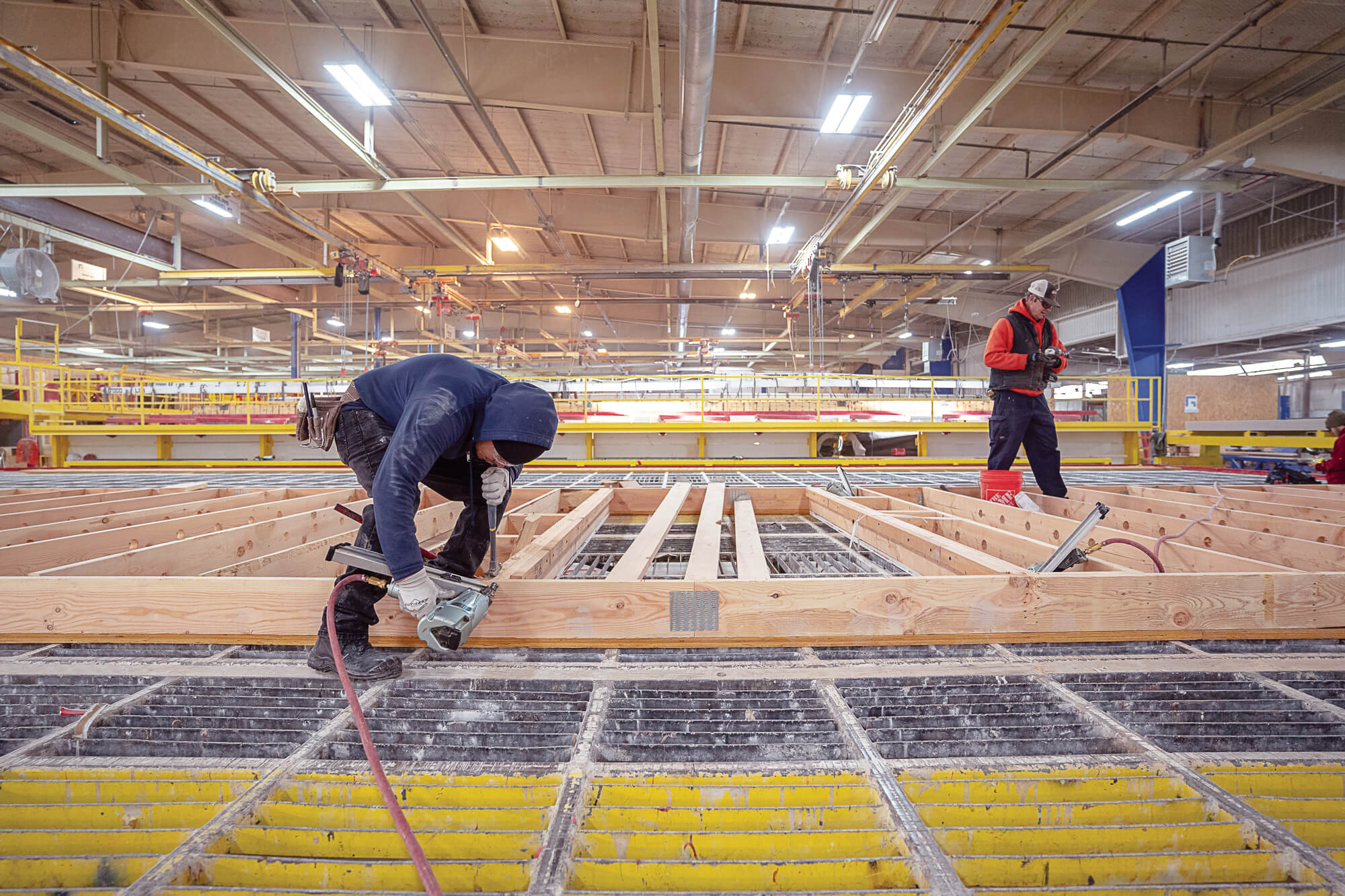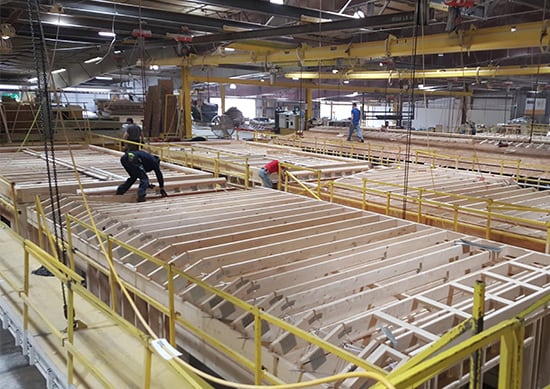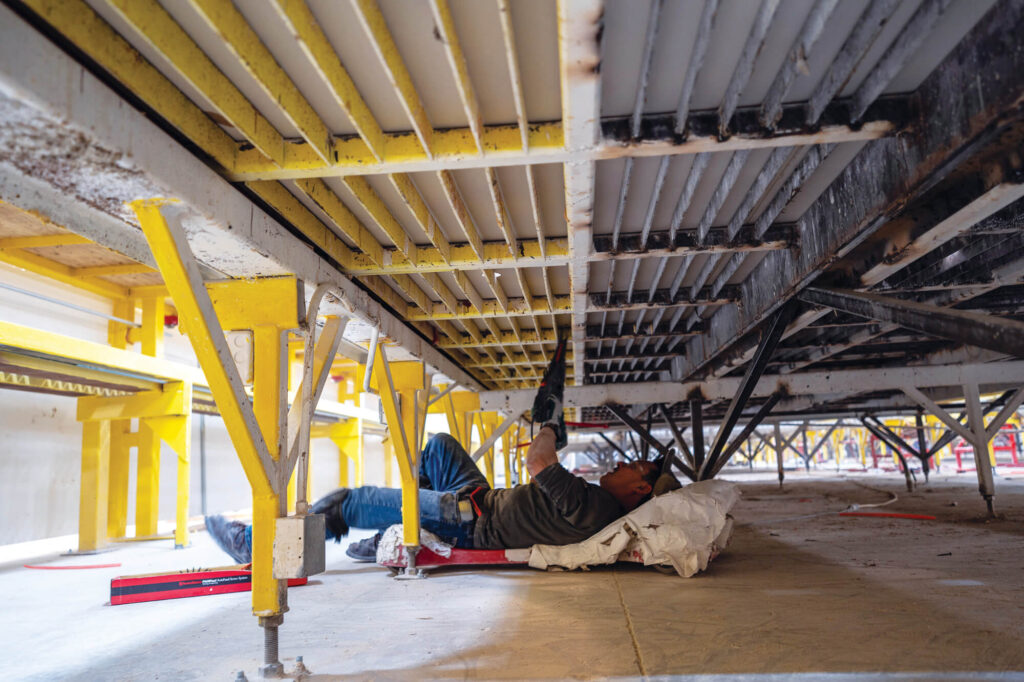In an era defined by rapidly evolving work structures and economic landscapes, the concept of using “gig” workers to address labor shortages in offsite and modular construction factories has emerged as an intriguing and potentially transformative idea. This innovative approach promises a unique blend of advantages and challenges, offering construction companies a flexible and cost-effective solution while requiring careful navigation through issues related to training, safety, loyalty, legal compliance, and workforce integration.

What is a “Gig” Worker?
A gig worker is a freelancer or independent contractor who performs short-term work for multiple clients. Gig workers are paid based on the projects they complete, rather than receiving a regular income.
A Flexible Workforce for On-Demand Needs
One of the key advantages of employing gig workers in the construction industry lies in their unparalleled flexibility. Gig workers can be readily mobilized to meet the precise labor requirements of offsite and modular construction factories. When the need arises, whether due to a surge in production or unexpected spikes in demand, companies can swiftly tap into this agile labor pool. The ability to scale up or down on short notice offers construction businesses a competitive edge in a market where adaptability is crucial.

Cost-Efficiency Through On-Demand Labor
Another compelling benefit of gig workers is their potential to reduce labor-related costs. Construction companies can optimize their expenditure by engaging gig workers only when their services are essential. This strategy mitigates the financial burden of maintaining a permanent workforce during periods of low demand, ultimately enhancing the bottom line. The cost-effectiveness of this approach can be a game-changer for businesses navigating the ebb and flow of the construction industry.
Unlocking Specialized Skills and Expertise
Beyond flexibility and cost-efficiency, gig workers bring a diverse range of specialized skills and expertise to the table. In the dynamic world of offsite and modular construction, where precision and adherence to strict standards are paramount, access to a varied talent pool is a valuable asset. The ability to tap into specialized skill sets as needed can elevate the quality and efficiency of production processes, leading to better outcomes for construction projects.
Navigating Challenges in the Gig Economy
While the advantages of incorporating gig workers into offsite and modular construction factories are evident, it is equally essential to address the associated challenges. The gig economy model presents unique hurdles that demand careful consideration and management.

Training and Ensuring Consistency
One significant challenge is ensuring that gig workers possess the necessary skills and knowledge to perform tasks to the required standards. Gig workers may not have the same level of training or experience as their full-time counterparts. Maintaining consistency and quality in modular construction processes can be particularly challenging when the workforce is in a constant state of flux. Effective training and ongoing supervision become crucial to bridge this gap.
Prioritizing Safety in Construction
Safety is paramount on construction sites and within factories. Strict regulations govern safety protocols, and any lapse can result in accidents and injuries. Ensuring that gig workers receive adequate safety training and adhere to safety guidelines is non-negotiable. Construction companies must be diligent in their efforts to guarantee the well-being of all workers, regardless of their employment status.
Balancing Loyalty and Commitment
Gig workers, by nature, often lack the same level of loyalty and commitment to a company as full-time employees. This inherent characteristic can pose challenges concerning reliability and consistency in the workforce. Construction companies must devise strategies to incentivize gig workers to deliver their best performance while maintaining a harmonious work environment.
Navigating Legal and Labor Rights
The legal and labor rights landscape for gig workers varies widely depending on the jurisdiction. Issues such as worker classification (independent contractor vs. employee) and compliance with labor laws necessitate careful consideration. Construction companies must navigate this complex terrain to avoid legal pitfalls and uphold the rights of all workers involved.

Integrating Gig Workers Seamlessly
The integration of gig workers into a factory’s existing team and processes can be an intricate puzzle. Communication and coordination may prove more challenging when workers are not part of a cohesive, full-time team. Bridging this gap requires deliberate efforts to foster teamwork, streamline workflows, and ensure seamless collaboration between gig workers and their permanent counterparts.
Striking a Balance: The Hybrid Approach
The utilization of gig workers in offsite and modular construction factories presents a multifaceted landscape with both advantages and challenges. While the flexibility, cost-efficiency, and access to specialized skills offered by gig workers are enticing prospects, construction companies must address the critical issues of training, safety, loyalty, legal compliance, and workforce integration.
The key to success lies in a strategic and well-balanced approach. Companies should carefully assess their specific operational needs and weigh the advantages and challenges associated with gig workers. A hybrid approach that combines the agility of gig workers with a core team of full-time employees may prove to be the optimal solution. This hybrid model can strike a harmonious balance between flexibility and stability, ultimately driving innovation and growth in the offsite and modular construction industry. As the world of work continues to evolve, construction companies that embrace this dynamic approach may find themselves better equipped to thrive in an ever-changing landscape.
.



